Intercultural Crosstalk
Researchers From Abroad② -About Life in Japan-
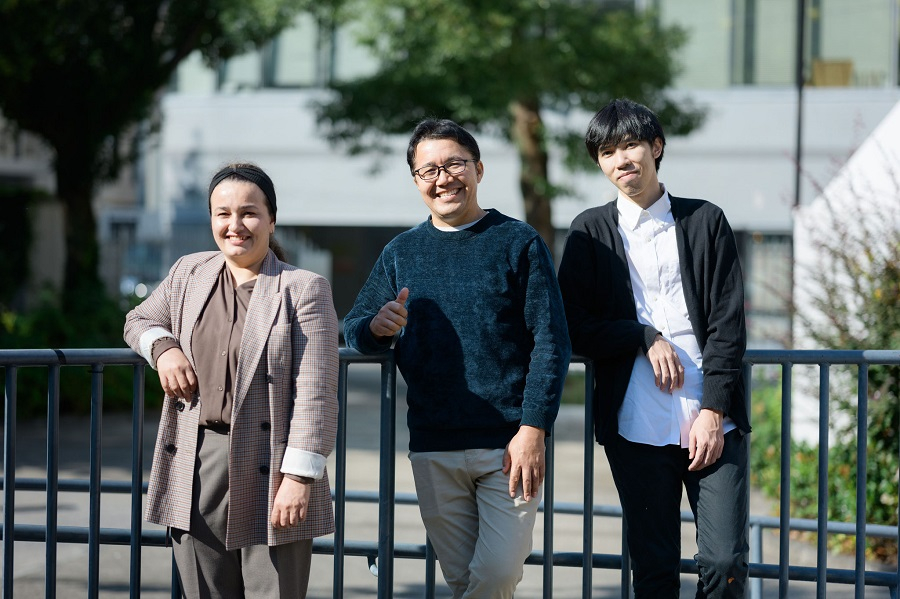
See their profiles here
Click for "1st Round" Here
Round 2: About Life in Japan
We asked 3 researchers living in Japan about how they spend time in their daily lives. As their research topics and environments differ, it seems that the time they spend on research and how they spend their days also differ. We also asked them about the things they do to take a break from their research and the things they enjoy about their lives.
How Much Time Do You Spend on Research in A Day?
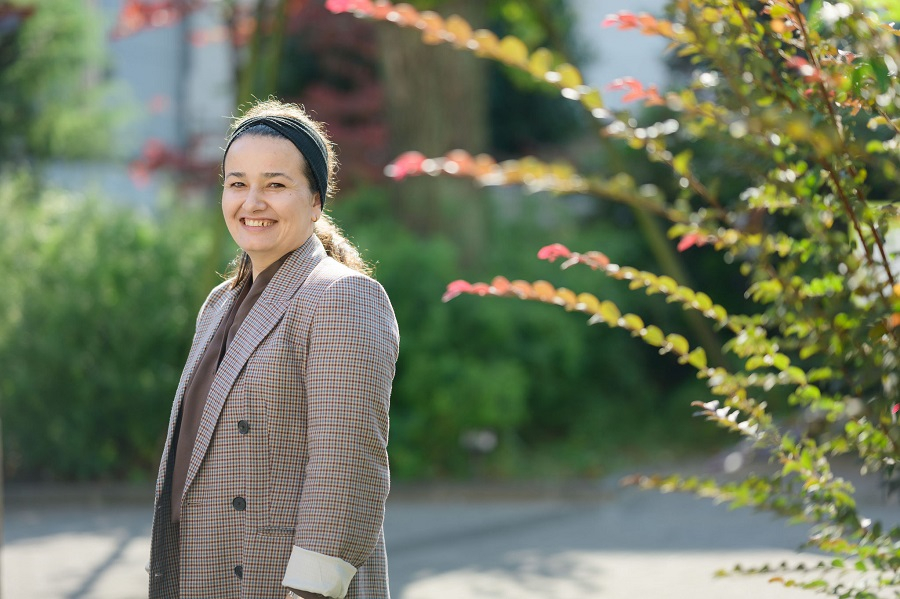
I'm in the lab from around 9:30 to around 17:30. I do research, analyze data, and work on my next research theme. I also need to do experiments, so I go to a different room and use chemicals to do them. My house is 5 minutes away from the university, so I go home at lunchtime and have lunch with my family.
My schedule is completely different from Ali's. I also have children to look after, so I only have 2-3 hours a day to do research. I do my research at night after putting my 2-year-old to bed.
I received a scholarship for 7 years from 2017 to March 2024. Now that the scholarship has ended, I also have a part-time job to pay for my tuition. I'm even busier now. I don't often go to the lab, but when I need to print out a paper I've written, I ask my husband or the lady next door to look after the kids while I go to the lab.
I live alone, and even when I go to the lab, it's no different from working at home, so I don't think there's any need to go to the lab in particular. Since I work from home, my research starts from the time I wake up. I only go out when I go to the documentation room, or when I have a part-time job or teaching assistant work.
Q. What is your weekly schedule like?
I have days off on Saturdays and Sundays. As my research field is related to plants, I sometimes have to look after them even on weekends. Other than that, I spend time with my family. On weekdays, I always have a seminar on Thursdays. I give feedback on the research results of students.
During the week, I'm pretty busy. I have a part-time job from Monday to Thursday, and I always attend my seminar classes on Fridays. On Saturdays and Sundays, my family is at home and it's lively, so I can't make any progress with my research. It's time to spend with my family. Researching while raising children is really busy work.
In my case, the line between work and rest is becoming blurred, so I make sure to have at least 1 day a week completely free. On these days off, I do nothing and sometimes stay in bed all day. I also work part-time on some days, but other than that I spend my time doing research, and I think it would be dangerous for me as a person if I didn't have a good balance, so I make sure to have days off.
What Do You Do To Take A Break From Your Research?
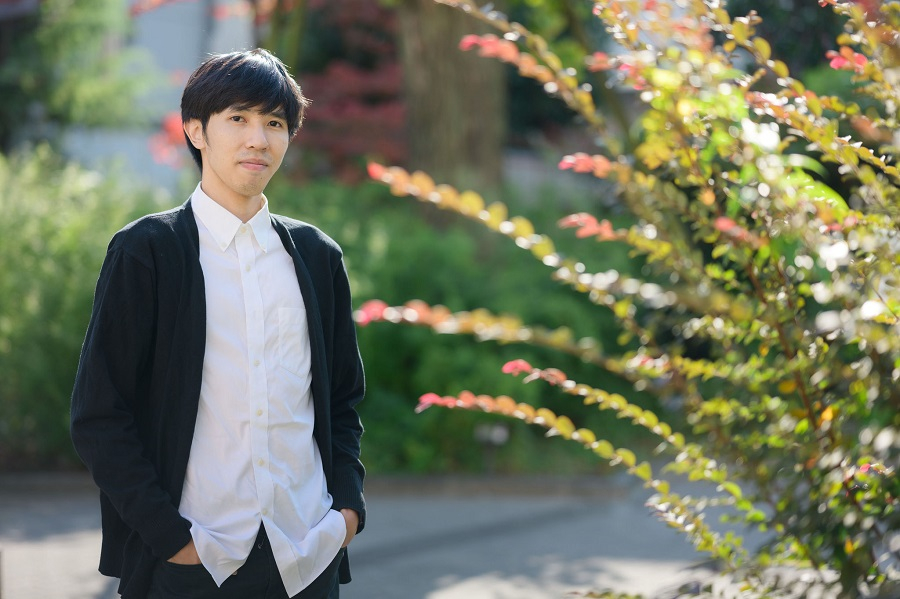
The university is very big, so taking a walk and chatting with friends, or talking with colleagues in my room, is a good way to relax. Also, going home at lunchtime to talk with my family is a good way to switch off. Sometimes I go to the gym with my eldest son or friends and play badminton.
I go to a nearby park. Sometimes, when there's no one else in the family, I just relax and take it easy without thinking about anything. I take naps sometimes too.
My way of taking a break is to work part-time. Right now, I'm working part-time as a waiter at an Italian restaurant. While I'm awake, I can't help thinking about my research, so I need time to spend without thinking about anything difficult. If I can concentrate on my work, I don't have to think about my research at all, so I think that's my way of relaxing.
When did your families come to Japan?
This time, I came with my whole family. We went from Afghanistan to Pakistan and then to Japan. I have 2 children, and my 10-year-old goes to elementary school, but my 3-year-old is still at home as we are waiting for a nursery school place.
I lived alone for the first 2 years after coming to Japan. After I started my master's course, I brought my husband and daughter to Japan. My husband went back to our home country for a while, and then he came back with our son in 2021. In 2022, our youngest daughter was born in Japan, so we have 3 children.
When Did You Think You Were Getting Used To Life In Japan?
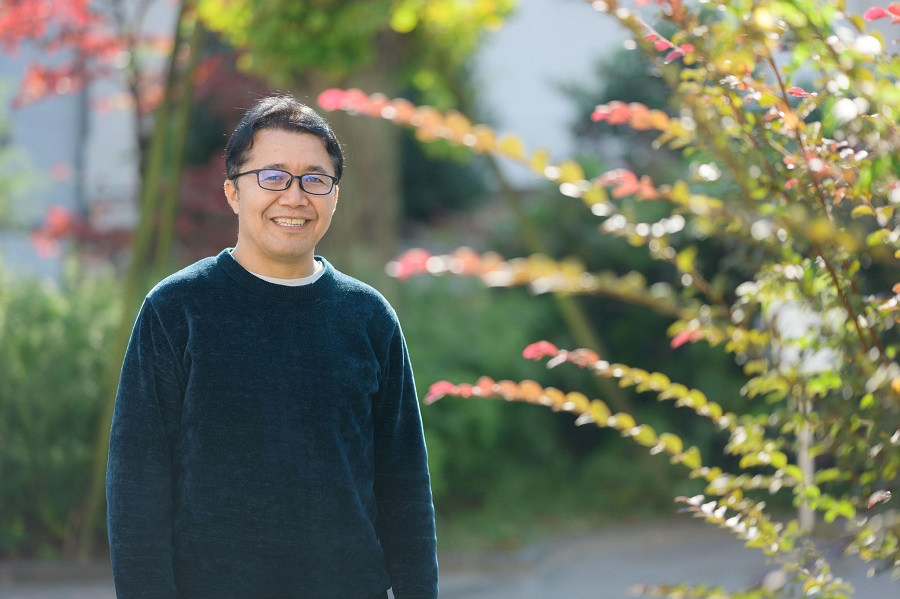
I've been in Japan for almost a year now, and I've gotten used to it quite quickly. The same goes for my family. My wife can do things like shopping in a mixture of English and Japanese. She studies at a Japanese language class at the university once a week. My older son is in the third grade of elementary school, and he says he enjoys school, and he can talk with his friends and can now write kanji. He is the best at Japanese in the family now. The children seem to have gotten used to Japan so much that they say they don't want to go to another country because they like Japan.
I felt I was getting used to life in Japan after about 3 years. I think I felt more at ease after my husband and daughter came to Japan. My husband couldn't speak any Japanese when he first came to Japan. He was able to speak Japanese after receiving language support at university for about a year, but his Japanese is a little strange. We speak in Tajik at home. My eldest daughter was 4 years old when she came to Japan. She was attending nursery school, so she is the most proficient in Japanese in our family.
The other day, when I suggested to my children that we apply for green cards and go to America, they said, "We want to study in Japan. Japan is the safest country and has the most advanced education." I was delighted at heart because I still also have my research to do.
When I came to Japan on an exchange program before, I naturally got used to life in a couple of months. On the other hand, after returning to China, I felt more and more out of place. For example, I found it strange when people cut in front of me in line at the subway. My home country is China and I lived in there for over 20 years, but I began to feel like my own country wasn't really my own country. It was hard to stand in line at the subway in China and not be outdone by other people.
When I came back to Japan in 2022, I felt a sense of security, like I had come home to my parents' house without any sense of discomfort. I had studied Japanese for many years, so my lifestyle and way of thinking had become Japanese-style all at once.
What Are The Difficult Things And The Things You Like in Your Everyday Life?
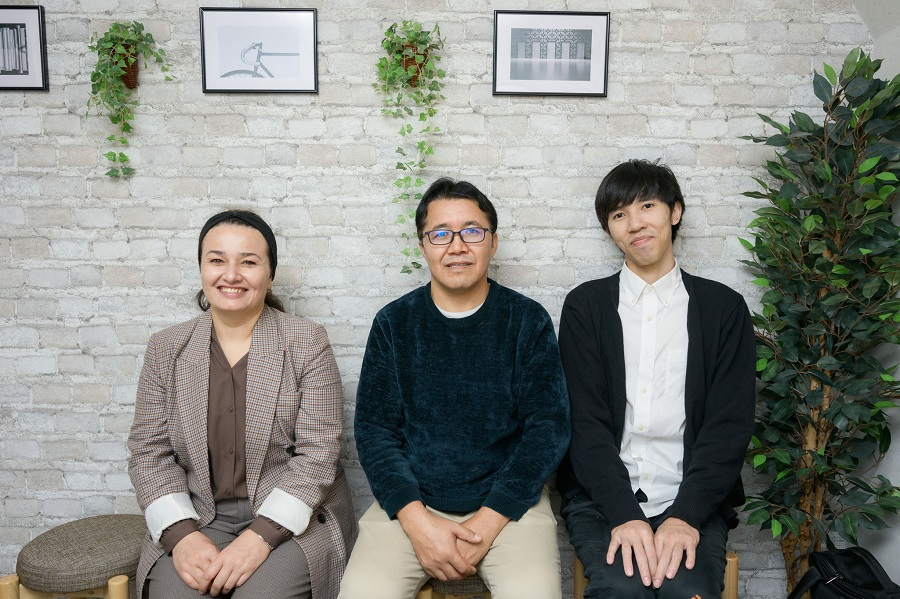
Reading and writing Japanese is difficult, especially kanji. Even if you learn them, you forget them after a week. Grammar is not that difficult, because the grammar of Japanese and Persian are similar. Anyway, kanji is very difficult.
The paperwork is very difficult. The procedures vary depending on the type of application. Even if you show them to a Japanese person and ask them about it, they may say "I don't know". Unless you go to the place where the procedure is required and ask for help, it will be difficult to complete the application. In particular, applying for a scholarship was very difficult.
Also, when my son became a high school student, the application process was quite difficult. If it was just a paper form, it would be fine, but when you try to do an online application by yourself, there are often errors. When I can't get it to work no matter what I do, I ask my Japanese teacher for help.
The thing that is most difficult for me is the final income tax return. Because I have a scholarship and part-time job income, I have to file a final income tax return. I've heard the explanation a few times, but there are still many things I don't understand. I don't understand terms like basic exemption or dependents. I think it's amazing that Japanese people do this every year.
In more abstract terms, I sometimes find it hard to get a sense of how close I should be with Japanese people. I don't know how close I should be with my colleagues at my part-time job. I'm not very good at interpersonal relationships, so I don't know what to talk about or how friendly I should be. Even when I'm invited out for a meal by my colleagues at my part-time job, I wonder if it's just a polite way of saying 'let's go out' or if I can go.
Q. What is your favorite part of life in Japan?
I think the work environment is good, and there is a good atmosphere of mutual support among colleagues. I feel that this is a unique aspect of Japanese universities. I think the application process is very difficult, just like Nabieva said, but local volunteers are always willing to help, and someone will always lend a hand.
I also think the insurance system is good. In other countries, the system is more complicated, and there are times when insurance does not cover everything.
Like Ali, I think the health insurance system is good. Also, the trains are very convenient. In Tajikistan, we travel by car and bus. My favorite place is Fuchu no Mori Koen (Fuchu Forest Park). When I was feeling sad because my family was not here, I would go to the park and watch the ducks, which helped to cheer me up.
I come from a tropical region where the seasons barely change. In Japan, you can see the autumn leaves, watch the snow, and do winter sports. In spring, you can see the cherry blossoms. I really like being able to feel the seasons here.
We've asked the participants about their life in Japan, and we hope you enjoyed it.
Some people start their research the moment they wake up, others can only start after their family have gone to bed, and some people have a set time to do their research every day. Everyone seems to have established a research and lifestyle style that suits them.
In the third part, we will talk about the "Differences between Japan and your home country".
── Continued in the Following Issues
